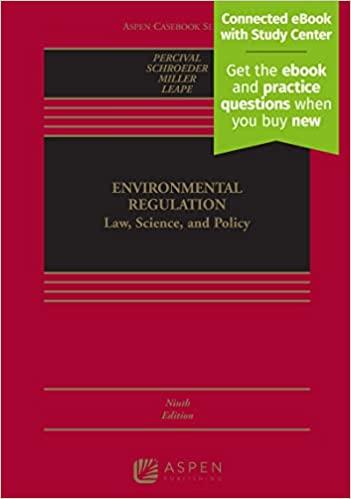Question
Nicole sells her 640-acre ranch to Kristin, delivering a closing a general warranty deed that contains all six standard title covenants , with no express
Nicole sells her 640-acre ranch to Kristin, delivering a closing a general warranty deed that contains all six standard title covenants , with no express exceptions. Four months after closing, Kristin discovers two problems. At the time of the conveyance, real estate taxes for the prior year were due and unpaid. Also, a footpath across the ranch goes from a neighbor's parcel to a lake that borders the ranch. It turns out that the neighbor, Ned, has an easement to use the footpath. Kristin demands that Nicole pay the taxes, along with a penalty assessed for later payment. Plus, she wants damages due to the effect of the easement on the ranch. Nicole refuses, saying that Kristi should have inspected and checked out these problems prior to closing and that merger applies.
(a) Who should prevail?
(b) Should it matter whether either party knew prior to closing that: (1) taxes were unpaid; (2) there was a footpath across the ranch; or (3) Ned periodically used the footpath?
Step by Step Solution
There are 3 Steps involved in it
Step: 1

Get Instant Access to Expert-Tailored Solutions
See step-by-step solutions with expert insights and AI powered tools for academic success
Step: 2

Step: 3

Ace Your Homework with AI
Get the answers you need in no time with our AI-driven, step-by-step assistance
Get Started


